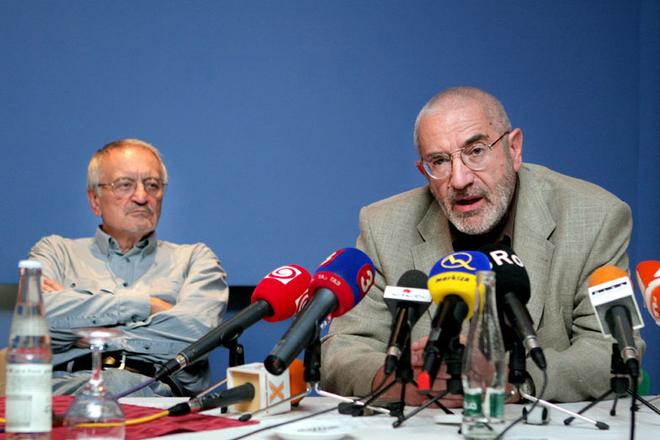AFTER banning private health insurers from paying dividends to their shareholders, and obliging them to return any profits to the healthcare system, the state now says it will assume the authority to approve their budgets. The insurers have rejected the plan as an unwarranted intervention in their management. But the Health Ministry said that all the regulation does is equalise private and state insurers in terms of their duties to the state.
“The goal of any health insurer should be to provide transparent information about its budget because they do not administer private funds, but transfers required by the law, which are part of public finances,” the Health Ministry said in an official release.
In the event that the government fails to approve the budget of a private health insurer, the insurer would be obliged to amend it in the manner of the two state-run health insurers the Všeobecná zdravotná poisťovňa and Spoločná zdravotná poisťovňa. Slovakia currently has two state-run insurers and three private health insurers - Apollo, Dôvera and Union - operating in the market.
The revision promises a tug-of-war but the private health insurers say the move is in keeping with the government’s general attitude towards private health insurers.
The proposal is intended to fulfill the government’s decision, made in May 2007, to “secure such legislative, economic and institutional steps that gradually will lead to the creation of a single health insurer,” Eduard Kováč, the executive director of the Association of Health Insurers (ZZP), told The Slovak Spectator.
The association will submit a series of objections to the interdepartmental review of the draft revision to the law on health insurers.
“The main concerns are that the revision dismantles the strict rules on administration of insurers and wants to soften the rules by using these sub-norms,” Kováč said.
According to Kováč, the revision is at odds with the constitution in at least two points.
The ministry, however, said that the government is responsible for the functioning of the whole health insurance system and for designing a total budget for all health insurers for each respective year.
The ministry also insists that the revision is in line with the values of the European Parliament, which calls on member states to secure the financial sustainability of their healthcare systems in a way that does not neglect values such as equality of financing and equality of access to healthcare.
“The draft does not deepen equality in the system but rather deforms it,” Kováč told The Slovak Spectator. “Despite the declared effort to secure equality, the proposal in fact gives advantage to the biggest state insurer.”
The ZZP also argues that the government in fact already has access to information about the budgets of health insurers since the insurers regularly submit information to the Health and Finance Ministries and the Health Supervision Authority.
Critics of the revision also argue that if the government is to approve the budgets of private health insurers, this in fact amounts to their competitors approving their budgets, since the state is the sole shareholder of the state health insurers.
“The health minister is a shareholder in the Všeobecná zdravotná poisťovňa and sits in the government along with the ministers of interior and transportation who are engaged in the Spoločná zdravotná poisťovňa,” Peter Pažitný of the Health Policy Institute told the public service Slovak Radio.
Private health insurers in Slovakia are banned from paying dividends to their shareholders, based on an amendment to the Health Insurance Act that the Slovak Parliament passed on October 25, 2007. Instead, any profits they make have to be fed back into the healthcare system.
Private health insurers were critical of the law, and some have been considering taking Slovakia to the international courts.
In May, the smallest health insurer Európska Zdravotná Poisťovňa (EZP) ceased operating in response to the government’s policy.
In July, Dôvera's main shareholder said it would open international arbitration proceedings in order to obtain compensation for the damage to its investment resulting from the October 2007 amendment.



 Eduard Kováč (right), executive director of the Association of Health Insurers. (source: SITA)
Eduard Kováč (right), executive director of the Association of Health Insurers. (source: SITA)